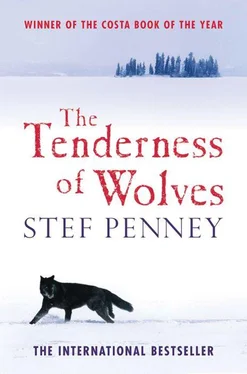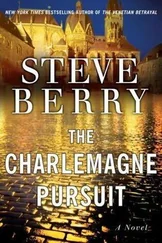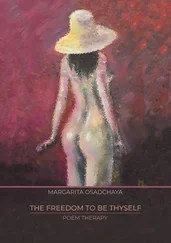Parker shrugs. ‘You think I should take Moody?’ He smiles at the unlikelihood of this. ‘He needs to stay. He needs to see that Stewart follows me. Then he will know.’
‘But, but you are …’
I am trying to reorder the facts again. Proof … what proof could there be, other than Stewart confessing?
‘You can’t go alone. I will come with you. I can be another pair of eyes. I can … You need a witness. A witness who can corroborate what you say. You should not go alone!’
My cheeks are burning. Parker smiles again, but gently. His hand reaches out, almost to my face, but stops short of touching it. I can feel tears in my eyes, threatening to wash away my composure, my dignity; everything.
‘You should stay here. Moody needs you. He is lost.’
And what about me? I think. The words seem so loud I am not sure I did not speak them, but Parker shows no sign of having heard. I try to keep my voice steady.
‘I don’t know what proof you think Stewart will provide, other than by killing you. That would probably be conclusive. And … and what if he sends someone else to kill you instead–how then could we link it to him? If you go on your own, and do not return, I do not think that will satisfy Mr Moody. That will not prove anything.’
‘Well’–Parker looks down, a hint of impatience coming into his voice–‘we will see tomorrow morning. Perhaps Stewart will tell us everything. Goodnight, Mrs Ross.’
I bite my tongue, hurt and angry. Parker may be unaware of it, but there are two people in this room who do not give up on a thing until it is finished.
‘Goodnight, Mr Parker.’
He goes, closing the door silently after him. For several minutes I remain rooted to the spot, wondering, among all the things I could or should be wondering, whether he knows my first name.
That night, I dream.
I dream, in a way that is vague yet disturbing, of Angus. I turn my head from side to side, wanting to turn away from my husband. He does not reproach me. He cannot.
I wake up in the depths of the night, in a silence so heavy I feel I could not get out of the bed if I tried. There are tears drying on my face, cold, making my skin itch.
I wondered for so long why he had become so distant from me. I assumed it was something I had done. And then, when Parker told me about Jammet, I thought it was because of Francis, because he knew and hated it.
In truth, it had begun a long time before that.
I bury my face in the pillow that smells of must and damp. Its cotton slip is as cold as marble. It is only here, alone and in the dark, that I can allow those thoughts some rein. Thoughts that come from nowhere, from dreams, taking me delirious hostage. I long for sleep again, because only in sleep can I slip the bonds of what is possible and right.
But as I have found so often in life, what you truly long for eludes you.
Donald presses a hand to the windowpane. It melts the frost that has formed on the inside overnight, leaving a clear print: the cold is getting stronger. The season moves on; they must leave soon, or become snowed in at Hanover House.
Yesterday he finished the letter to Maria. This morning he reads it over; he thinks it strikes the right note–it says nothing overly affectionate, but after laying out his thoughts–such a relief to be able to say what he thinks–he expresses the warm wish to see her and resume their interesting conversations. He folds it into an envelope, but leaves it blank. He has a horror of other people reading his letters. He is sure Mrs Ross, on one of her nosy and importunate visits to his room, noticed an earlier one to Susannah.
Susannah. Well … not having been in this situation before, Donald is unsure how to proceed. He has an idea that she will not be heartbroken–after all, he tells himself, nothing was said, not really. Nothing that was a promise. He feels uncomfortable, because on the face of it it is not admirable behaviour, and Donald does so want to be admirable. But he sees, more clearly from a distance than he did in Caulfield, that Susannah is a robust creature. Even as he knows this, he chastises himself for taking solace in it. Perhaps he will not allow his letters to her to be delivered. Perhaps he should rewrite them yet again, to rinse them clean of any redundant yearning.
At this juncture, with Donald still sitting at the table surrounded by missives to the Knox sisters, there is a knock at the door. It is Parker.
Stewart is in his office, a pot of coffee on his desk, the fire lit but losing the battle with the metallic cold which advances from window, door and even through the walls.
Donald, feeling it is his place to lead, and having said as much to Parker and Mrs Ross, clears his throat rather aggressively.
‘Mr Stewart, please forgive the early hour. We need to have a talk with you.’
Stewart hears the grave tone in his voice, but he still smiles as he invites them in. He orders more cups–this time it is Nancy who answers the bell and goes to fetch them. Donald keeps his eyes on the floor while she is in the room, hoping the warmth in his face is invisible. No one looks at him anyway.
Donald begins, ‘I think you should know the real reason for our being here.’ He ignores Mrs Ross’s look. He cannot see Parker’s expression, as he sits beside Stewart in front of the window, and is thrown thereby into shadow. ‘We followed a trail. It led north from Dove River, and we have good reason to believe it led here.’
‘You mean it was not Mrs Ross’s son?’
‘No. At least, not this far. And there are men here whose presence has been kept from us.’
Stewart nods, his face serious, his eyes downcast. ‘I believe some things have been said that misled you. I apologise for it. Let me tell you what I know; perhaps you can then fill in some of the gaps. What I said was true–Nepapanees was one of my best men. A good worker, a skilled steersman, a great tracker. But over a year ago, something happened to him. It’s usually drink, as I’m sure you must have seen …’ He glances at Donald, but somehow includes them all. ‘But not in his case. At least not at first. I don’t know what it was, but his mind became deranged. He did not know his wife. He did not know his own children. This spring he walked out of the fort and it seemed he was living wild. Occasionally he came back, but it was better when he stayed away. He was away for a long time some weeks ago. I had a feeling he had done something. I had that feeling more strongly when you came. But by then …’ He shrugs, letting his shoulders fall.
‘I did not want to bring any more disgrace on his wife and family. I wanted to spare them that. Nesbit and I agreed to … cover it up. To pretend that he was dead. It was foolish, I know.’ He lifts his eyes, and they seem to be shining with tears. ‘In a way, I wish he were. He is a poor wretch who has caused much suffering to those who loved him.’
‘But how could you tell his wife he was dead? How could you makes her suffer so?’ Mrs Ross is leaning forward, her eyes boring into Stewart’s, her face pale and taut, some emotion, anger probably, radiating from her like a magnetic force.
‘Believe me, Mrs Ross, I thought about that a great deal. I decided that his death would bring less pain to her and the children than he ultimately would, alive.’
‘But how did you think you could keep his presence from her? He was seen here two days ago!’
Stewart goes very still for a moment, before he looks up, revealing his awkwardness. ‘It was foolhardy. I allowed myself to … Sometimes, over the past few years, in winter especially, I have felt that I am losing my judgement. But if you had seen him with his children … staring at them as they ran up to him, screaming the foulest abuse, full of hatred and fear … God knows what demons he thought they were. It was terrible to see their faces.’
Читать дальше












